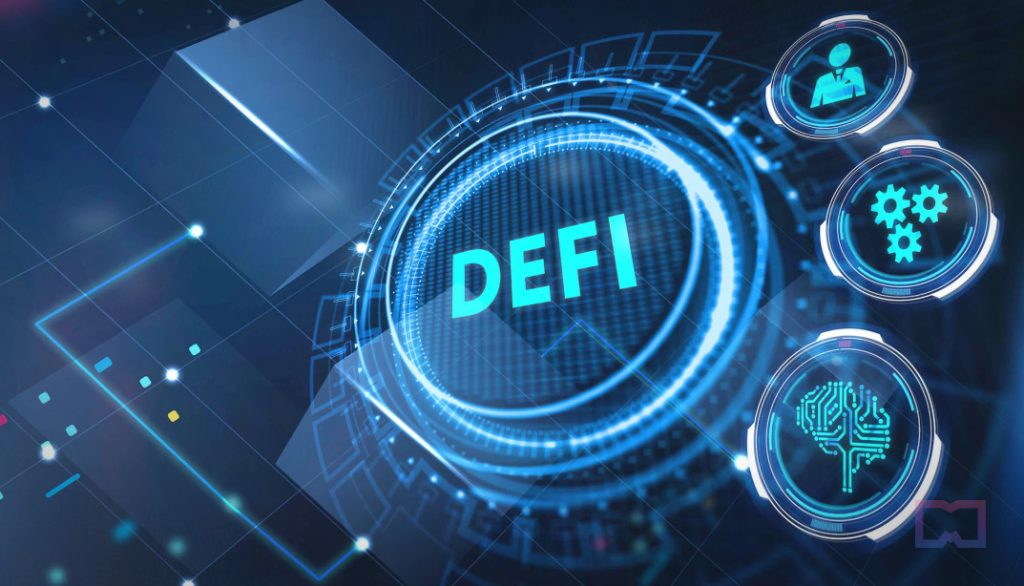An In-Depth Beginner's Overview of DeFi Staking with PoS Coins (2023)
In Brief
The popularity of DeFi staking in the crypto landscape is attributed to its enabling users to foster the development and expansion of DeFi protocols and platforms.
By participating in DeFi staking, users can actively contribute to the evolution of DeFi protocols while earning enticing rewards.
Initially gaining momentum in 2020, DeFi staking has evolved into a widely embraced strategy for yielding returns. It allows users to commit their crypto holdings in exchange for interest or rewards, leading to the expansion of diverse protocols and services within the ecosystem.

What is DeFi staking?
DeFi staking entails locking your digital assets to secure return on investment. Participants, known as stakers, can receive various forms of rewards, including tokens and dividends. The platforms provide different staking options to cater to user preferences; however, it's essential to understand the accompanying risks tied to the innovative nature of these blockchains, like market volatility and security threats.
What advantages does DeFi staking offer?
One of the primary perks of staking is the opportunity to earn substantial rewards. There are numerous staking alternatives available, enabling users to tailor their DeFi staking experience. Rewards can also come as interest payments, dividends, or tokens.
Beyond generating rewards, DeFi staking empowers users to play a role in the enhancement and sustainability of protocols and platforms. By staking their resources, participants bolster the network's security and health.
How does DeFi staking work?
To begin staking, users must first place their digital assets into a DeFi staking platform. After deposit, these assets contribute to the network's security while allowing stakers to earn rewards. The kinds of assets accepted and the staking durations are often determined by the specific DeFi protocol or platform.
Choosing to stake assets so as to validate the network comes with incentives as stakers are motivated to accurately validate transactions and blocks, or they risk losing part or all of their deposit. Additionally, staking conveniently enables DeFi protocols to enhance liquidity offerings without relying heavily on funds from the creators.
It’s crucial to acknowledge that DeFi staking is a relatively fresh concept, and hence there are still many uncertainties involved. Potential participants should thoroughly evaluate the risks before allocating resources to DeFi staking.
What are the risks of DeFi staking?
Staking is appealing to investors Many users are drawn to DeFi staking due to the high reward potential; however, it's accompanied by inherent risks and challenges tied to the emerging blockchain technology of the crypto sector, with concerns regarding volatility and security. Additionally, there's a counterparty risk as users depend on third parties to manage their assets.
Other potential risks associated with DeFi staking include:
- Volatility: Platforms for DeFi staking face the same fluctuations as any other crypto asset. The value of staked assets can quickly rise or plummet, leading to possible losses for stakers.
- Security Threats: Since DeFi staking platforms operate on decentralized blockchains, they are vulnerable to hacking and security breaches. Users could risk losing their assets if a platform is compromised.
- Counterparty Vulnerability: DeFi staking platforms are centralized entities holding users’ assets. Consequently, users are placing their trust in a third party. If a platform faces mismanagement or financial problems, there’s a risk of losing assets for stakers.
What makes DeFi staking a sought-after practice in the crypto realm?
DeFi staking has emerged as a valuable practice in the crypto sphere because it allows users to facilitate the growth and sustainability of DeFi protocols. By staking their assets, individuals contribute to the network's security and overall viability.
Can you stake on DeFi wallet?
Absolutely, you can utilize DeFi wallets for staking Proof of Stake (PoS) coins. DeFi staking is centered on leveraging DeFi technology and protocols for securely depositing cryptocurrencies into a DeFi wallet to use as collateral for generating rewards.
Moreover, DeFi opens up fresh avenues for users looking to optimize their cryptocurrency assets. Engaging in DeFi staking can significantly enhance yield potential while providing passive income with little effort.
Exploring the Future Landscape of Decentralized Finance Staking
The outlook for DeFi staking appears promising as more individuals are recognizing the numerous advantages offered by DeFi protocols and platforms. Through staking, users actively participate in the growth of these systems while benefiting from various rewards.
Related articles:
- PayPal Integrates Cryptocurrency Features into its Mobile Application
- Users of PayPal can now send cryptocurrencies to external wallets.
- Sony Music Entertainment has filed for new trademarks related to NFTs and the Metaverse.
- The English Premier League has also filed trademarks for crypto and NFTs.
Disclaimer
In line with the Trust Project guidelines Please remember that the information on this page is not intended to serve as legal, tax, or financial advice. Only invest what you are willing to risk losing, and consider seeking independent financial guidance if you have concerns. For more details, please refer to the terms and conditions, as well as the help and support sections provided by the issuer or advertiser. MetaversePost strives for unbiased accuracy in reporting, but be aware that market conditions can change swiftly without prior notice.







